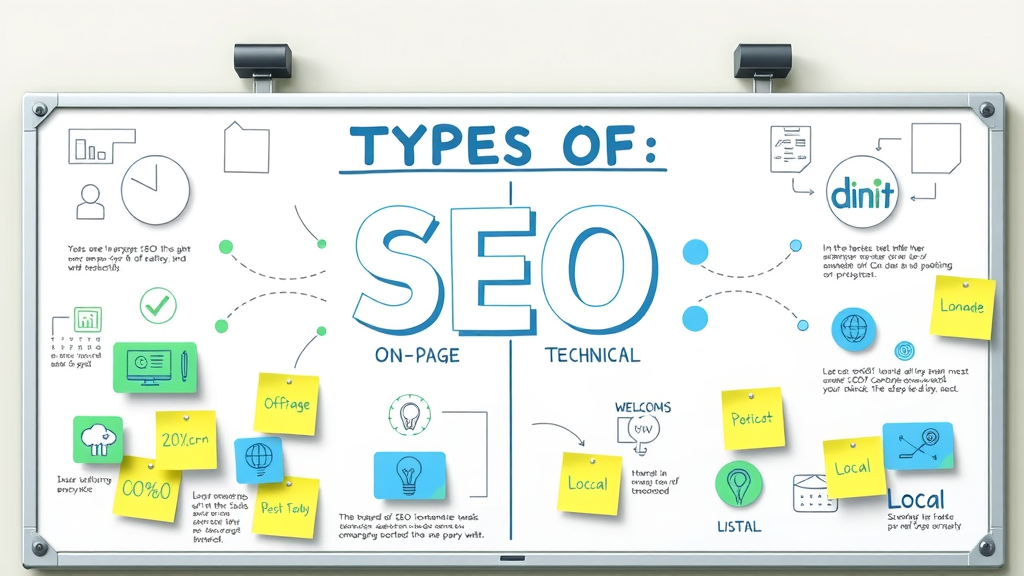Did you know that over 90% of online experiences begin with a search engine? Yet, most businesses unknowingly commit a critical search engine optimization (SEO) mistake that quietly drains thousands from their bottom line every year. In a digital age dominated by search engines like Google and Bing, overlooking essential SEO work is not just a minor oversight—it’s an expensive misstep that can cost your business millions in lost opportunities. This article confronts the hidden costs of SEO neglect and provides actionable strategies to transform your online visibility, attract higher traffic, and ultimately increase revenue. If you’re ready to uncover the costly error hurting your search engine rankings, keep reading.
Are You Making This Expensive Search Engine Optimization Error? Why Ignoring SEO Costs Businesses Millions
Thousands of businesses across every industry invest in websites and digital marketing strategies, yet many fail to prioritize search engine optimization—or worse, ignore it entirely. This is an expensive error, as search engines are the primary source for online discovery and customer acquisition. With over 90% of web experiences starting with a search engine, your search engine rankings directly impact your ability to generate organic search traffic, qualified leads, and sales.
Search engine optimization isn’t just a marketing buzzword; it’s a fundamental part of increasing brand visibility and credibility. Failing to optimize your site or making critical SEO mistakes, such as neglecting on-page elements or dismissing technical SEO, silently undermines your digital investment. Studies show that businesses on page two of Google search results capture less than 1% of total clicks, compared to over 30% for those ranking in the top three. Simply put, poor SEO work instantly limits your visibility in search engine results, making it harder for your target audience to find you and easier for competitors to take the lead.
- Surprising industry statistic: Over 90% of online experiences begin with a search engine.
“Failure to prioritize search engine optimization is a silent profit killer for businesses in every sector.” – Digital Marketing Analyst
- What you’ll learn in this article:
- How search engine optimization impacts your revenue
- The most costly SEO mistake and how to fix it
- Proven step-by-step engine optimization strategies
- SEO work best practices, including technical SEO guidance
- How to integrate social media and user experience for powerful SEO results

Understanding Search Engine Optimization: Definition, Goals, and Why It Matters
What Is Search Engine Optimization and Why Is It Essential for Search Engines Visibility?
Search engine optimization (SEO) is the process of strategically improving your website’s visibility within search engines like Google and Bing. The primary goal of SEO is to help your site appear higher in organic search results for relevant queries, thereby driving targeted, unpaid traffic to your pages. In the ever-expanding digital marketplace, ranking higher on a search engine results page (SERP) leads to better brand awareness and more opportunities for conversion.
Search engines use complex algorithms to determine the order in which websites appear for search queries. These ranking factors include relevant content, technical site performance, page SEO elements like title tags and meta descriptions, user experience indicators, backlinks, and much more. A strong SEO strategy ensures your website ticks all the boxes search engines look for when ranking sites. This means that engine optimization is not a one-time project but an ongoing process of improving and updating your website to meet evolving search engine criteria.
It's essential to understand that effective search engine optimization isn’t just about “tricking” search engines but about providing real value to users. As algorithms become more sophisticated, SEO work must focus equally on both technical aspects and user-centered content. For businesses of any size, embracing engine optimization is key for long-term success in the digital ecosystem.
- Definition and purpose of search engine optimization
- How search engines determine rankings
- Overview of engine optimization as an ongoing process

The Biggest Search Engine Optimization Mistake: Overlooking On-Page SEO
Critical Components: Keyword Research, Title Tags, and Meta Descriptions
Ignoring or underestimating on-page SEO is the most common and costly search engine optimization mistake businesses make. On-page SEO refers to optimizing individual pages on your website for target keywords, high-quality content, relevant meta tags , and compelling title tags and meta descriptions . These elements are crucial, as they directly influence how your website appears in search engine results pages and how likely users are to click through to your site.
The foundation of solid page SEO lies in effective keyword research . By understanding what your audience is searching for, you can tailor your content, title tags, and meta descriptions to rank higher and attract qualified traffic. Neglecting this step leads to missed opportunities, as your pages might not appear for the most relevant queries. A well-crafted title tag signals to both search engines and users what your page is about, while a concise meta description encourages clicks and improves engagement rates.
Failing to optimize these elements results in lower engine rankings, decreased visibility, and reduced website traffic. This, in turn, limits your potential revenue and diminishes the return on your digital marketing investment. Effective engine optimization starts with getting the basics of on-page SEO right.
- Consequences of neglecting on-page SEO
- Role of keywords in search engine optimization and how keyword research informs strategy
- How to craft title tags and meta descriptions that drive clicks
| Element | Optimized Version | Non-Optimized Version |
|---|---|---|
| Title Tag | Digital Marketing Agency | Boost Your Online Sales Fast | Welcome to Our Homepage |
| Meta Description | Grow your business with proven digital marketing strategies. See how our solutions improve your rankings and sales. Call for a free consult! | We excel in digital marketing. Learn more about us today. |

Technical SEO: The Backbone of Successful Search Engine Optimization
Site Structure, Core Web Vitals, and Mobile Optimization Best Practices
Technical SEO is the bedrock of every successful SEO strategy, ensuring that search engines can seamlessly crawl, index, and rank your website. Unlike on-page elements, technical SEO focuses on the behind-the-scenes infrastructure—such as site speed, mobile-friendliness, secure connections (HTTPS), and logical site structure—that enables your pages to rank higher in search engine results. Search engines prioritize sites that load quickly, function flawlessly on mobile devices, and are free from technical errors.
Even small technical SEO mistakes, like broken links, duplicate content, or slow page speed, can prevent your site from appearing in top Google search results. These errors not only frustrate users but also signal to search engines that your site may not be the best candidate for favorable rankings. Every additional second of load time reduces conversions and can cost your business in both search engine traffic and lost revenue.
To ensure your website stands out, regularly audit your technical SEO health. Key elements include structured data markup, XML sitemaps, optimized images, and checking Core Web Vitals—metrics that measure the user experience your site provides. Keeping your technical SEO strong isn’t just about pleasing search engine bots; it’s about delivering faster, more reliable experiences for your visitors, which is a win-win.
- What technical SEO is and why it matters to search engines
- How technical SEO errors and slow load times cost you rankings and revenue
- Checklist: Key technical SEO elements to audit today

User Experience and Social Media: Their Role in Effective Search Engine Optimization
How User Experience Signals and Social Media Content Boost Search Engine Rankings
Modern search engine optimization extends well beyond keywords and HTML tags. User experience (UX) has become an essential ranking factor in Google search algorithms, meaning that how visitors interact with your site directly influences your position in engine results. Fast load times, mobile-friendly designs, intuitive navigation, and compelling content make users stay longer and engage more deeply—these are all positive UX signals that search engines reward.
Social media also plays an increasingly important role in effective SEO work. When users share your content on platforms like Facebook, Twitter, and LinkedIn, it amplifies your site’s reach and can drive valuable traffic back to your pages. Real-world examples show that viral social media campaigns often lead to more backlinks, higher brand visibility, and improved engine rankings. While social signals don’t directly impact ranking algorithms, the additional exposure and engagement can indirectly boost your search result performance.
Improving user experience for better SEO means focusing on page SEO improvements like clear calls to action, minimizing intrusive ads, and using engaging visuals. For your next step, consider performing a UX audit and integrating social media promotion into your marketing strategies. The synergy between user experience and social media is too powerful to ignore for long-term search engine optimization success.
- What is user experience in the context of engine optimization
- How social media amplifies SEO work with real-world examples
- Top user experience improvements for better SEO:
- Enhance mobile usability
- Speed up load times
- Simplify navigation and internal linking
- Use engaging, visually appealing content
- Ensure accessibility for all users
“Improving user experience is no longer optional for search engine optimization — it’s a direct ranking factor.” – SEO Strategist

Step-by-Step Search Engine Optimization Process for Beginners
From Keyword Research to Page SEO: A Roadmap for Effective SEO Work
If you’re new to search engine optimization, the process can seem overwhelming. But with a simple framework, you can build a strong foundation that drives real results. Start with keyword research —identify terms your audience is searching for and prioritize those with high search volume and low competition. Use tools like Google Keyword Planner, SEMrush, or Ahrefs to streamline this process. A good SEO strategy flows from understanding your audience’s intent to optimizing your content around those keywords.
Next, focus on on-page SEO by creating quality content, optimizing title tags, and crafting compelling meta descriptions that accurately convey your page value. Don’t forget about technical SEO : improve site speed, mobile compatibility, security, and internal linking structure. Lastly, develop off-page SEO elements, such as getting backlinks from reputable sources and enhancing your presence on social media platforms.
By following a structured search engine optimization roadmap, you can gradually improve your engine ranking and grow your website’s authority. Use these core steps and leverage reliable tools to keep your SEO work on track—even if you’re just starting out.
- Simple framework for executing successful engine optimization
- How to do keyword research that fuels your SEO strategy
- Overview of on-page SEO, technical SEO, and off-page elements
| Step | Best Tool | Resource Link |
|---|---|---|
| Keyword Research | Google Keyword Planner, SEMrush | Google Keyword Planner |
| Technical Audit | Google Search Console, Screaming Frog | Google Search Console |
| On-Page Optimization | Yoast SEO, Moz Pro | Yoast SEO Blog |
| Link Building | Ahrefs, Moz Link Explorer | Ahrefs Backlink Checker |

As you refine your SEO approach, it’s helpful to understand the foundational concepts and terminology that drive effective optimization. For a deeper dive into what SEO truly means and how it works, explore this comprehensive guide on the fundamentals of SEO to strengthen your strategy from the ground up.
How to Fix Your Search Engine Optimization Missteps Today
4 Actionable Steps to Improve Existing SEO Work
If you suspect your site is falling short on essential search engine optimization tasks, now is the time to act. Start by conducting a comprehensive SEO audit using trusted tools like Google Search Console or SEMrush to identify and prioritize technical errors, crawl issues, broken links, and opportunities for improvement. A clear understanding of your current SEO work will highlight the biggest opportunities for growth.
Once issues are identified, rewrite your title tags and meta descriptions with a focus on clarity, relevance, and keywords. This small yet powerful step can instantly increase your click-through rates on search engine results pages. Simultaneously, review your site’s user experience through analytics data—look for pages with high bounce rates or low engagement and update them to better serve your audience.
Finally, amplify your SEO efforts by integrating social media and off-page strategies, such as promoting content across platforms and acquiring valuable backlinks. Consistently updating your approach and leveraging modern SEO tools ensures your site keeps pace with algorithm changes and remains highly visible in search engines.
- Audit your existing engine optimization using industry-standard tools
- Rewrite title tags and meta descriptions with search engines in mind
- Update user experience elements based on analytics
- Integrate social media and off-page strategies

The Role of Search Engines: How Algorithms, Google Search, and Bing Shape SEO Strategy
What Search Engines Look For: Essential Ranking Factors in Engine Optimization
Every search engine—whether it’s Google search, Bing, or others—relies on sophisticated algorithms to assess websites and determine how they should rank on a search engine results page. While Google search dominates with its market share, understanding what all search engines stand for helps you focus your SEO strategy on universal principles: relevant keyword usage, high-quality content, fast-loading pages, and strong backlinks.
Search engine algorithms evolve constantly, with regular updates impacting which sites rank higher. Algorithm changes such as Google’s Core Updates or Bing’s AI enhancements can reshuffle rankings overnight. Staying up to date on these changes is crucial for effective engine optimization, as it allows you to adapt quickly and avoid penalties or sudden drops in search result visibility.
Engine optimization is an ongoing process. Pay close attention to search engine communication channels, industry blogs, and test new strategies frequently to remain competitive. The key is to focus on creating valuable experiences for users, as search engines reward sites that continually invest in SEO best practices.
- Google search vs. other search engines: Key similarities and differences
- Algorithm updates every business should be aware of
- How search engine optimization adapts to changes in ranking criteria
People Also Ask: Answers to the Top Search Engine Optimization Questions
What is of search engine optimization?
Search engine optimization (SEO) is the strategic process of improving a website’s visibility in search engines like Google and Bing, with the aim of increasing organic (non-paid) website traffic. SEO work involves aligning your website with search engine ranking factors, such as quality content, technical health, and user experience, to boost your presence in engine results.
How to do SEO for beginners?
Beginners can start SEO work by conducting effective keyword research, creating quality content optimized with those keywords, and focusing on on-page elements like title tags and meta descriptions. Address technical SEO issues—such as site speed and mobile-friendliness—and regularly review analytics to identify areas for improvement. Practical tools like Google Search Console, Moz, and Yoast SEO can help streamline the process for those new to engine optimization.
Can I do SEO on my own?
Yes, anyone can learn the basics of search engine optimization and apply effective SEO work with today’s modern tools and resources. With ongoing learning, free online guides, and hands-on experimentation, it is entirely possible for business owners and marketers to manage SEO in-house and achieve significant improvements in search engine rankings.
What are the 4 types of SEO?
The four primary types of search engine optimization are on-page SEO (optimizing individual pages for keywords and quality content), off-page SEO (building site authority with backlinks), technical SEO (improving underlying site infrastructure), and local SEO (targeting geographical search queries). Together, these four types ensure comprehensive engine optimization and the best chance of ranking higher on search engines.

Common Search Engine Optimization Myths and FAQs
Frequently Asked Questions About Engine Optimization and Search Engines
- Can social media directly boost SEO rankings? Social media does not directly influence search engine rankings, but it helps amplify your reach, attract backlinks, and improve your site’s authority, which can indirectly enhance your position in the search engine results page.
- What is a meta description and how does it impact engine optimization? A meta description is the brief snippet shown beneath your page title in search engine results. A well-written meta description can increase click-through rates, signaling to search engines that your result is relevant and valuable to users.
- Is paid search necessary for search engine optimization success? No, paid search (such as Google Ads) does not directly affect organic search engine ranking. However, combining paid and organic strategies can increase visibility and speed up results in competitive industries.
- How often should I audit my SEO work for best results? Regular SEO audits are recommended at least quarterly, or after any major website change or algorithm update, to ensure that your site continues to meet best practices and perform well in search engine results.
- Does Google search penalize duplicate content? Yes, Google search algorithms can penalize sites with duplicate content by diffusing ranking signals or removing duplicate pages from the search engine results page, which can hurt your overall search engine optimization efforts.
Take Action: Start Your Search Engine Optimization Journey & Unlock Business Growth
- Are you ready to take your business to the next level with search engine optimization? Don’t wait—unlock the full potential of search engines. Book your free marketing strategy session with our expert team today .

Key Points to Remember for Search Engine Optimization Success
- Consistent and well-executed search engine optimization is your most valuable marketing investment.
- Prioritize on-page SEO, technical SEO, and user experience for best results.
- Don’t underestimate the impact of social media and keeping up with SEO trends.
- Take immediate steps to audit and upgrade your SEO work.
Start today: Audit your website, implement proven engine optimization best practices, and watch your search engine visibility—and revenue—soar.
If you’re committed to maximizing your marketing ROI and want to see how SEO can transform your business growth, it’s worth exploring the broader impact of search engine optimization on small businesses. Discover why SEO is considered the most powerful marketing investment for companies looking to thrive in competitive markets by reading this in-depth analysis of SEO’s value for small businesses . You’ll gain actionable insights and strategic perspectives that go beyond technical fixes—empowering you to make smarter, long-term decisions for your brand’s digital future.
To deepen your understanding of search engine optimization (SEO) and its critical components, consider exploring the following resources:
This comprehensive guide from Search Engine Land delves into the various facets of SEO, including technical optimization, content optimization, and off-site optimization, providing a holistic view of how these elements contribute to improved search engine rankings.
Offered by Google Search Central, this starter guide outlines essential SEO practices, emphasizing the importance of creating user-friendly websites that are easily crawlable and indexable by search engines, thereby enhancing your site’s visibility.
By engaging with these resources, you’ll gain valuable insights into effective SEO strategies and best practices, empowering you to optimize your website for better search engine performance and increased organic traffic.
 Add Row
Add Row  Add
Add 



Write A Comment